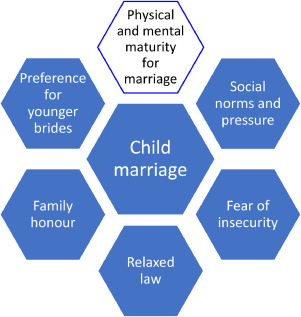The present study aimed to investigate the attitude and empathy of youth towards physically disabled persons.
This study supports SDGs 13,14 and 15 by unveiling the palaeoenvironment in response to global climate changes.
An article in support of SDG 3, estimating that 3.69 million people had Alzheimer's disease or other dementias in India in 2019, with prevalence rapidly increasing in those older than 60 years.
This content aligns with Goal 14: Life under Water by emphasizing the significance of freshwater habitats as repositories of aquatic biodiversity.
Objective: Smoking is an important causative factor of chronic obstructive pulmonary disease (COPD), and females are considered more susceptible to the effects of smoking than males. However, in previous Korean studies, the effects of sex differences on the association between smoking and COPD have been controversial. In this study, the effects of sex differences on the association between smoking and COPD and the effects of female hidden smokers on that association in Korean adults were investigated.
Background: Because of the limited epidemiological evidence on the association between acute air pollutants and allergy, there is a need to investigate this association, especially between the short-term exposure to air pollution and the serum Immunoglobulin E (IgE)-mediated allergy. Methods: A total of 39,569 IgE test results and demographic characteristics were obtained in the First Affiliated Hospital of Guangzhou Medical University between August 2012 and September 2019. Ninety-nine specific allergens were tested according to clinical diagnosis.
Background: Rohingya girls living in the refugee camps in Bangladesh are disproportionately vulnerable to child marriages and teenage pregnancies. This study examines the factors affecting child marriage and contraceptive use among Rohingya girls who have experienced child marriages. Methods: We collected and analysed quantitative and qualitative data from adolescent Rohingya girls (age 10-19 years) who experienced child marriages.
Anemia affects more than half of Nepalese children aged 6–59 months. Although prevalence varies year to year, the stability of observed risk factors suggests the need to focus on reducing gastrointestinal infection, promoting adequate household sanitation, and improving maternal and child health.
As the country with the world's largest coal power capacity, China is launching a national carbon market. How the carbon pricing may contribute to phasing out China's coal power is a great concern. We collect full-sample data set of China's 4540 operating coal plant units and develop a stochastic Monte-Carlo financial model to assess the financial sustainability of the plant operation. Although China's coal plants have long residual technical lifetime, their operations are close to the break-even state.
Elsevier,
Disaster Resilience and Sustainability, Adaptation for Sustainable Development, 2021, Pages 1-20
This book chapter advances SDGs 9 and 11 by explaining how increasing frequency and intensity of natural disasters in Asia have become a huge challenge to achieve sustainable development. The main purpose of this chapter is to capture the multidisciplinary and multisectoral aspects of disaster resilience, adaptation strategy, and sustainability, and connect existing data, research, conceptual work, and practical cases on disaster risk management and its linkage with sustainable development under a common umbrella.


